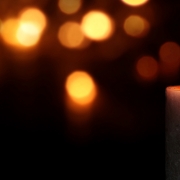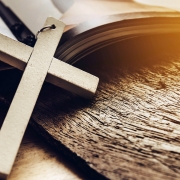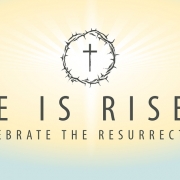Pastor’s Piece – May 15
Here is the latest update from our chief pastor:
It is great news that we are now beginning to offer public celebrations of the Mass in some areas of our diocese. While we would like to join together as quickly as possible, we must proceed cautiously, consistent with guidance from state and local officials and health experts, in an effort to continue protecting the health and safety of parishioners, volunteers, staff, clergy and all who serve throughout the Diocese.
As we move forward, portions of the Diocese will reopen at different times as the commonwealth takes a regional approach to Phase One of re-opening. Governor Ralph Northam originally announced that many areas of the commonwealth will enter Phase One of re-opening on May 15. At the request of local officials in Northern Virginia, the Governor has delayed Northern Virginia’s re-opening until at least May 29. The areas impacted are Arlington, Fairfax, Loudoun and Prince William Counties (and those cities located within that area) along with the City of Alexandria.
Parishes in Northern Virginia will not be able to celebrate public Masses at this time. However, all parishes in these Northern Virginia counties are permitted, but not mandated, to conduct Communion services, provided they are done in a manner consistent with existing social distancing protocols and health and safety guidelines. It is left to the prudential judgment of each pastor to determine if his parish is able to move in this direction. Please contact your local parish to see if it will be offering this liturgy.
Beginning May 16, parishes outside of Northern Virginia will be permitted, but not mandated, to resume public celebration of the Mass if the parish’s pastor feels confident that Masses can be celebrated safely and in accordance with diocesan protocols. As such, parishioners outside of Northern Virginia should contact their parish to know if Masses will be publicly celebrated. During this time and due to capacity limits, please do not plan to attend liturgies at any parish other than your own. Parishes will continue to livestream the Mass to the best of their ability.
Guidelines for celebrating the Mass in Phase One include gathering at no more than 50% of the lowest occupancy of the room or facility, ensuring proper social distancing and diligently maintaining cleaning schedules. Additionally, all parishioners are expected to wear face coverings while on parish property. Due to social distancing requirements, not all parishes will be able to accommodate 50% capacity. Pastors of parishes outside of Northern Virginia have the discretion to decide if they can safely enter Phase One. For the health of our priests and in order to allow for thorough cleaning between Masses, not all parishes will maintain a normal Mass schedule.
Until further notice, I am continuing the dispensation from the obligation to attend Mass on Sundays and Holy Days of Obligation. I encourage those who are 65 years old or older, as well as those with underlying health conditions, to avoid gatherings of the general public and attending public liturgies.
In laying out the details of how we move forward, I will continue to be assisted by the Diocese of Arlington’s Reintegration Working Group, which has been meeting regularly and is providing requirements, recommendations and resources to parishes as they begin to hold public Masses.
Key resources have been provided to help parishioners worship safely. In consultation with our pastors, I am confident we are responding to the best of our ability to the spiritual and physical wellbeing of the faithful and making appropriate progress in upholding with public health and federal, state and local directives. As this situation continues evolving, each phase will allow us the opportunity to take steps in a positive direction in unity and faith.
May we continue to pray for one another and all those who need our prayers, especially at this time. We will continue to keep the faithful updated as the situation evolves.
Sincerely in Christ,
Bishop Michael F. Burbidge
Christ’s Peace,
Fr. Murphy
P.S. Please, feel free to participate at SSM this Sunday as has been the custom. Nevertheless I am changing procedure for Holy Communion. For those who are listening to Mass on 89.5 FM “The Martyr” in their cars, don’t line up for Communion. I will distribute to those in the church, porch and hall, and then give the final blessing. Afterwards I will bring Communion to your vehicle. Please, be waiting outside of it if you wish to receive. This will avoid the large groupings.
P.P.S. On May 29th, the Knights of Columbus will be collecting non-perishable food to replenish the Saint Lucy Project’s food warehouse. Donations will be accepted at the Food Lion parking lot off Washington Street in downtown Haymarket between 10AM and 2PM on Friday the 29th. If you can’t deliver your donation to the Food Lion parking lot on the 29th, you may bring any donations to Saint Stephens from May 11– May 28. There will be a bin labeled “St.Lucys” in the narthex for your donation



